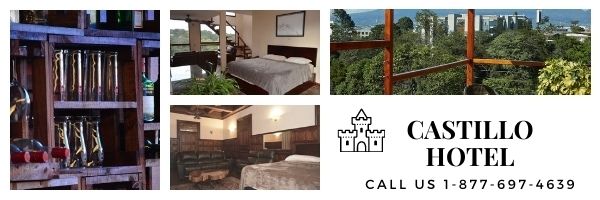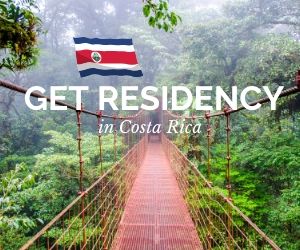http://www.nacion.com/ln_ee/2005/julio/24/pais1.html
MayorÃa de hospitales operan en condiciones crÃticas:
Construcciones son obsoletas y falta personal en enfermerÃa
Directores reconocen fallas, pero solicitan más apoyo de la CCSS
El 78% de los hospitales públicos opera en condiciones crÃticas.
Según un estudio realizado por el Ministerio de Salud, 21 de los 27 centros incumplen con el 30% o más de los requisitos de personal, mobiliario e infraestructura que exige la norma de habilitación aprobada en el 2002.
Durante dos años, los funcionarios evaluaron planta fÃsica, trabajadores, equipo y documentación de todas las unidades de servicio de los hospitales.
Si bien el grado de cumplimiento no es el adecuado, hasta el momento no se ha ordenado el cierre de algún centro.
Francisco Gólcher, jefe de la Unidad de Habilitación del Ministerio de Salud, explicó que las recomendaciones sugeridas en el informe son de acatamiento obligatorio, pero agregó que, por ahora, se solicitó a cada hospital un plan para remediar la situación, con su respectivo cronograma, el cual debe ser aprobado por ellos.
En el México y otros hospitales nacionales están revisando los extintores y equipo contra incendios para prevenir accidentes.
Eddy Rojas
"Estamos claros de que algunas decisiones dependen de niveles superiores como la inversión o contratación de personal, por eso, evaluaremos las solicitudes que los directores hagan ante las autoridades de la CCSS", dijo.
Los directores de los centros hospitalarios aceptaron que deben hacer mejoras en sus establecimientos, pero solicitaron más ayuda por parte de las autoridades de la CCSS. Aclararon que siempre han estado realizando cambios.
Al mismo tiempo, dijeron que es lógico que la mayorÃa no cumpla el 100% de la normativa, pues muchos hospitales fueron creados hace más de 80 años, y la reglamentación se aprobó hace tres.
La norma de habilitación especifica las condiciones que deben cumplir los centros hospitalarios públicos y privados.
El Ministerio de Salud también evaluó cuatro centros particulares, y la mayorÃa de ellos están totalmente a derecho.
Algunos puntos. Entre las conclusiones de infraestructura, el estudio determinó que el 63% de los hospitales tiene construcciones obsoletas. Además, la mitad de ellos ya cumplió con su vida útil, pues tienen más de 30 años.
En la Unidad de OncologÃa del San Juan hay problemas de personal. Andrea Ledezma es enfermera, pero labora como auxiliar.
Eddy Rojas
También se evidenció un alto deterioro en los pisos, paredes y cielo rasos de las estructuras y apuntó que "el mantenimiento preventivo y correctivo está rezagado".
En cuanto al recurso humano, el análisis sostuvo que la mayor deficiencia está en los hospitales regionales y periféricos.
Existe un recargo de funciones y algunos no cuentan con especialistas, sino que son atendidos por personal técnico, como Internamiento o Farmacia.
Una de las principales preocupaciones de los directores es la carencia de plazas para enfermeras y anestesiólgos.
Por ejemplo, el hospital de Liberia estrenará en febrero seis salas de cirugÃa, pero solo tiene dos anestesiólogos, para las tres que ya tienen y para las nuevas.
Algunos detalles de la Norma
En regla
Preocupación
Directores están preocupados por el faltante de enfermeros y anestesiólogos
La norma se publicó el 23 de setiembre del 2002 en La Gaceta.Clasifica según los servicios que se dan en obstetricia, atención al recién nacido, cirugÃa, medicina interna, ginecologÃa, pediatrÃa, emergencias, anestesiologÃa, farmacia, enfermerÃa, diagnóstico por imágenes, laboratorio clÃnico, esterilización, nutrición, trabajo social, infecciones intrahospitalarias, dirección, administración, registros médicos y estadÃstica, seguridad e higiene laboral, lavanderÃa, documentación.La norma toma en cuenta el recurso humano, la planta fÃsica, el recurso material, documentación, gestión, educación, manejo de la información y la calidad en cada uno de los servicios.
Buena nota
Privados. El Ministerio de Salud evaluó cuatro hospitales privados de la capital: el Cima San José y las clÃnicas BÃblica, Católica y Santa Rita.
Buena nota. Según el estudio, la Santa Rita, Cima San José y BÃblica cumplen con el 100% de la norma de habilitación. La Católica obtuvo el 67%.
Argumento. El director de la clÃnica Católica, el médico Juan Carlos Quesada, explicó que las autoridades de Salud hicieron la evaluación en el 2002 y desde entonces no han regresado. "Nosotros les hemos entregado informes con los trabajos y correcciones que se han hecho, eso no está reportado en el informe. La mayorÃa de las observaciones fue de asuntos logÃsticos, habÃa que arreglar algunos protocolos y asuntos de recursos humanos".
Cambio. Quesada agregó que hace tres años la clÃnica Católica estaba administrada por las hermanas de la PurÃsima Concepción, ahora está a cargo del Grupo Sama.
Habilitada. Sostuvo que la habilitación que les dio Salud vence en julio del 2006. Fue del criterio de que los privados deberÃan tener una norma diferente a los públicos, porque ellos no poseen salones con pacientes, sino habitaciones individuales, por lo que muchos puntos que incluye la norma no los involucra a ellos.
Hospital de Quepos con plan correctivo para que extintores no caduquen, hay unos vencidos.
Francisco RodrÃguez
Con recursos propios
Otros centros intentan mejorar
Hace 10 años el hospital Enrique Baltodano, en Liberia, Guanacaste, fue declarado inhabitable por el Ministerio de Salud.
Hoy es el hospital del Estado con el porcentaje más alto de cumplimiento de la norma de habilitación, con un 77%, a solo tres puntos de salir del rango "bajo" para subir al "bueno".
El médico Mario Angulo, director interino, explicó que el esfuerzo ha sido paulatino, pero constante. "Los detalles que nos faltan por resolver son sencillos, como protocolos de atención", dijo.
Entre las modificaciones, el edificio de hospitalización es totalmente nuevo, y en febrero se abrirán seis salas de operaciones, además de las tres que ya están.
La otra cara.En 1993 las autoridades del San Juan de Dios, en San José, desalojaron la sección de Medicina porque no soportaba un sismo, pero en octubre de este año se inaugurará la nueva estructura, con un costo de ¢2.500 millones.
Manrique Soto, director del San Juan, dijo que muchos de los arreglos en estos centros se ejecutan con recursos propios del hospital. Sostuvo que si bien se envÃan cartas a la junta directiva de la CCSS, en las que exponen los problemas, no siempre reciben respuestas.
Dinorah Garro, administradora del hospital México, explicó que ellos siempre proyectan las prioridades de cada año, pero lamentó que los recursos son tan limitados.
"Las obras menores se deben incluir en los presupuestos de cada hospital, pero para las más grandes necesitamos apoyo de la CCSS, el problema es que para nosotros algo que parece muy grande puede ser pequeño según las prioridades de las oficinas centrales", dijo.
Alberto Sáenz, presidente ejecutivo de la CCSS, indicó que la responsabilidad de los edificios y pacientes es de los directores.
En pocas palabras
Alberto
Sáenz
Presidente ejecutivode la CCSS
"Directores deben priorizar"
El informe del Ministerio de Salud revela que el nivel de cumplimiento de la norma de habilitación hospitalaria es crÃtico.
El diagnóstico es muy útil, que se tendrá que atender de forma paulatina, pero las sugerencias y correcciones que se piden en los hospitales no se pueden resolver de la noche a la mañana.
Algunos sostienen que la norma tiene estándares muy estrictos y difÃciles de cumplir.
Nosotros no queremos estándares bajos, siempre debemos aspirar por los estándares más altos, estamos de acuerdo con ellos, los podemos alcanzar, pero de manera paulatina.
Los directores de hospitales están de acuerdo en cumplir con la norma y hacer las correcciones del caso, pero sostienen que necesitan más apoyo económico por parte de los directivos de la CCSS.
Los directores deben priorizar sus presupuestos, y al igual que ellos harán su esfuerzo, nosotros también haremos el nuestro por fortalecer los recursos para mantenimiento y mejoramiento de los edificios y personal. El director el es responsable del edificio y de los pacientes de cada hospital. Primero se debe administrar lo esencial, sin dejar de hacer cosas.










